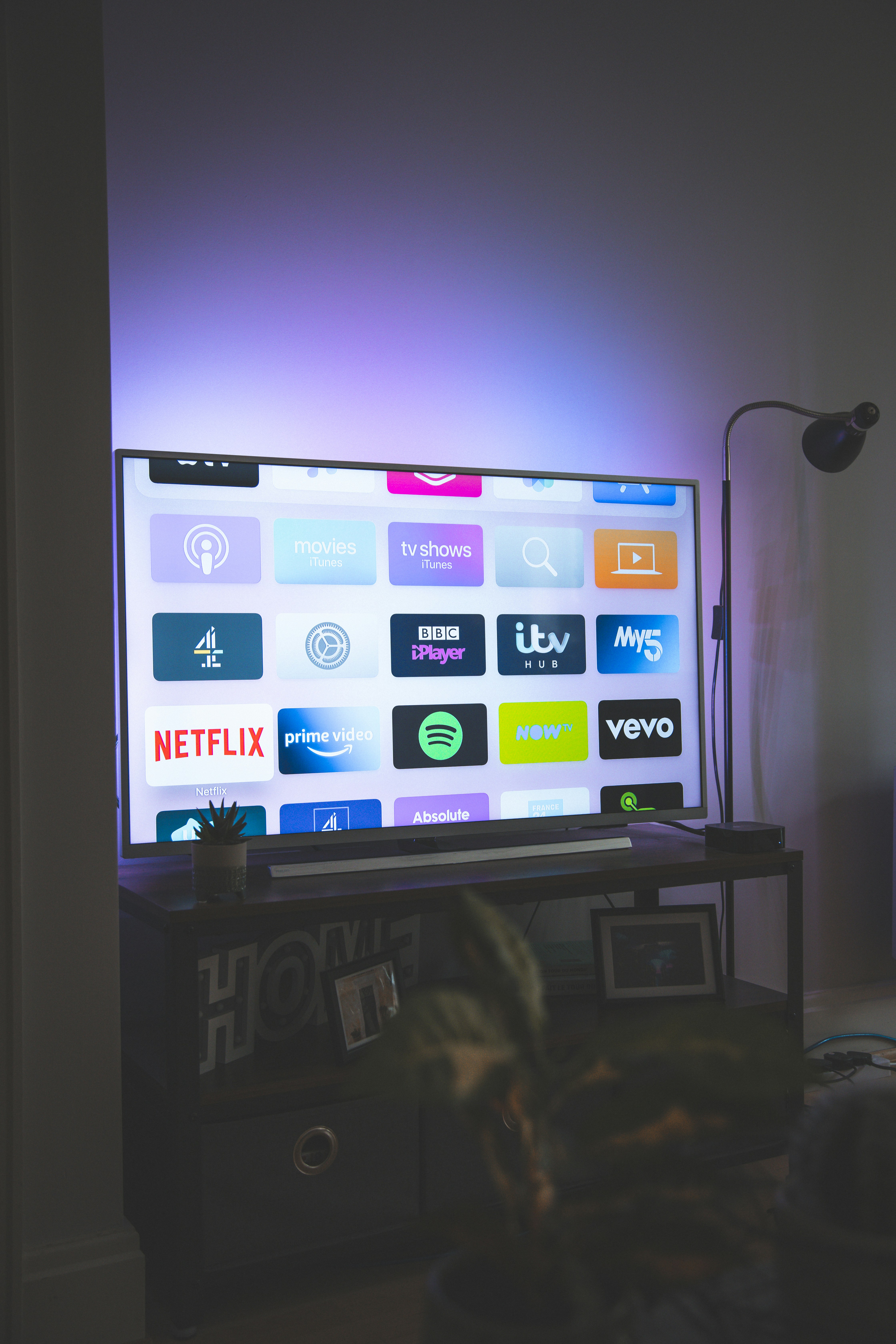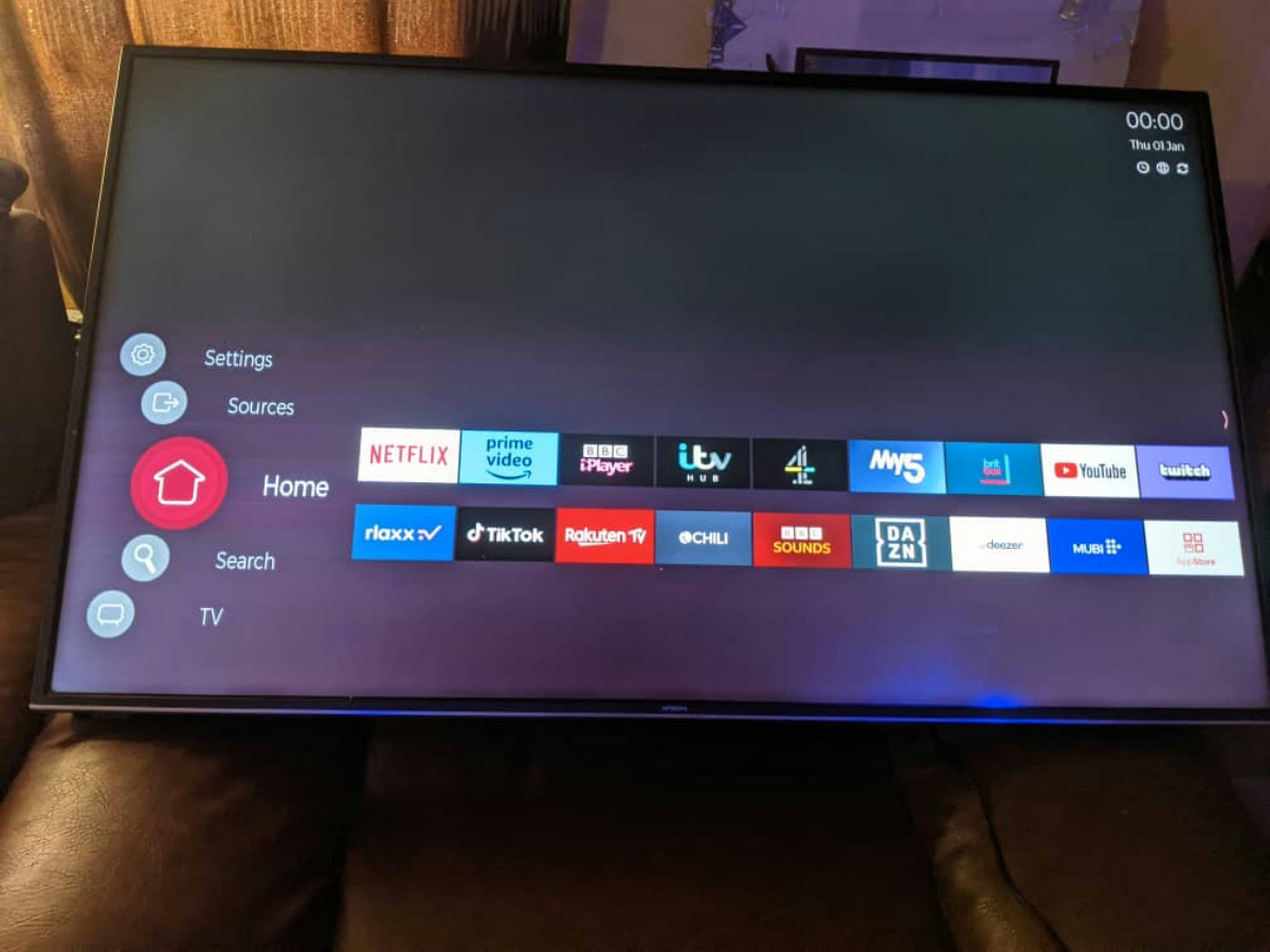
Introduction: The Fear of IPTV Legality
The emergence of Internet Protocol Television (IPTV) has sparked a debate about its legal standing, particularly as we approach 2025. With the increasing popularity of streaming services, consumers are presented with numerous options for accessing television content globally. However, this growth has also bred anxiety regarding the potential legal ramifications associated with utilizing IPTV services. Concerns about arrests, fines, and scams overshadow the market, making it imperative for users to understand the implications of their choices.
One significant worry for consumers is the fear of legal action resulting from the use of unauthorized IPTV services. Reports of individuals facing penalties, including steep fines or even legal prosecution, resonate throughout social media and news outlets, often creating an atmosphere of uncertainty. This lingering fear is exacerbated by the fact that not all IPTV providers operate within the legal framework, leading many to question the reliability of the services they choose. Understanding the difference between legitimate IPTV offerings and those that may lead to legal troubles is essential for consumers aiming to enjoy their favorite shows without the risk of getting burned.
Additionally, the proliferation of online scams targeting unsuspecting users compounds the issue. Many providers make enticing promises of premium content at extremely low prices, but upon investigation, these offers may reveal a lack of licensing and legitimate content access. The potential consequences of selecting such services extend beyond financial loss, as users may unknowingly expose themselves to legal repercussions. Therefore, it is crucial for individuals interested in IPTV to remain informed about the legal landscape and their options in 2025. By doing so, consumers can make educated decisions that keep them within legal boundaries, allowing for an enjoyable streaming experience devoid of unnecessary risks.
Understanding the Difference: Legal vs Unverified IPTV Providers
IPTV, or Internet Protocol Television, is a method of delivering television programming over a broadband internet connection. As this technology continues to evolve, it is essential for users to distinguish between licensed IPTV services and unverified providers. Licensed IPTV services operate under legal agreements with content creators and broadcasters, ensuring that viewers have access to genuine content without infringing copyright laws. Examples of reputable IPTV providers include mainstream platforms like Hulu Live TV, YouTube TV, and Sling TV, all of which comply with legal regulations and offer subscribers quality programming.
In contrast, unverified IPTV providers typically offer access to pirated content. These services often mimic legitimate providers in appearance but lack the necessary licenses to distribute the programming. Using such services carries substantial risks, including the potential for legal consequences, exposure to malware, and poor service quality. Consumers drawn to the allure of inexpensive subscription rates may find themselves exposed to a range of legal challenges.
Real-world cases demonstrate the serious implications of using unverified IPTV services. For instance, in Germany, authorities executed a series of raids leading to the shutdown of several illegal IPTV operations, resulting in sweeping fines for both operators and end-users. Similarly, Europol has consistently warned about the growing piracy linked to unverified IPTV services, stating that such practices undermine the integrity of creative industries. In the UK, local law enforcement has also ramped up efforts to target illicit IPTV services and their users, further emphasizing the importance of identifying legitimate options.
Ultimately, understanding the differences between licensed and unverified IPTV providers is crucial for consumers looking to enjoy programming without legal repercussions. By opting for reputable services, users can protect themselves from the risks associated with illegal IPTV use.
How to Vet an IPTV Provider: A Step-by-Step Checklist
When considering an IPTV provider, it is imperative to assess its legitimacy carefully. A systematic approach can help you avoid potential legal pitfalls and ensure a satisfactory viewing experience. Here is a step-by-step checklist designed to guide you through the evaluation process:
1. Check for Licensing: It is crucial to confirm that the IPTV provider holds the necessary licenses to distribute the content they offer. Legitimate providers will typically display their licensing information on their website or in their terms of service. If this information is not readily available, it may indicate a lack of legitimacy.
2. Research Reviews: Investigating customer reviews and testimonials can provide insights into the reputation of an IPTV service. Look for feedback across multiple platforms, including forums, social media, and dedicated review websites. Pay attention to comments about the quality of service, content variety, and reliability.
3. Evaluate Customer Service: Reliable customer support is indicative of a trustworthy IPTV provider. Test their responsiveness by reaching out with questions or concerns. A legitimate service will offer various ways to contact support, such as email, phone, or live chat, and will respond in a timely manner.
4. Content Availability and Quality: Investigate the content library of the IPTV provider. A legitimate provider should offer a comprehensive selection of channels and on-demand programming. Additionally, it is advisable to check the streaming quality and any available resolutions to ensure a satisfactory viewing experience.
5. Assess Pricing Models: While there are inexpensive IPTV services available, extremely low prices can be a red flag. Compare pricing against competitors to determine if the offer seems suspiciously cheap. A legitimate IPTV service will have a pricing structure that reflects the quality of service and content provided.
Following this checklist can help you distinguish between reliable and questionable IPTV providers, safeguarding your viewing experience while ensuring compliance with legal standards.
The Role of VPNs: What They Do and Don’t Do
Virtual Private Networks (VPNs) have emerged as an essential tool for those engaging in online streaming, particularly in environments where content access may be restricted. At their core, VPNs function by encrypting a user’s internet connection and routing it through a remote server. This process enhances privacy by masking the user’s IP address, thus providing anonymity and securing data transmission from prying eyes. However, it’s important to clarify what a VPN can and cannot do regarding streaming, especially when it pertains to legal concerns surrounding IPTV.
One of the primary benefits of utilizing a VPN is improved privacy and security. By hiding your IP address, a VPN can help maintain the confidentiality of your online activities, protecting you from potential data breaches and cyber attacks. This aspect of a VPN can be particularly reassuring for users streaming content that may be subject to legal scrutiny. However, while a VPN can hide your online presence, it does not alter the legality of the content being streamed. Users need to understand that streaming copyrighted material without appropriate permissions may still lead to legal ramifications, irrespective of whether a VPN is employed.
When considering which VPNs to use for streaming, several reputable options are available that prioritize both speed and security. For example, NordVPN, ExpressVPN, and Surfshark are often recommended, as they provide fast servers optimized for streaming and maintain a strict no-logs policy. However, while these services can facilitate seamless access to content, users must remain aware of the laws governing IPTV in their jurisdiction. Utilizing a VPN does not provide immunity from copyright infringement allegations, and users should exercise caution and due diligence before engaging in streaming activities.
Risk Factors of IPTV Use
Internet Protocol Television (IPTV) has revolutionized the way individuals consume media; however, it is not devoid of risks. Below is a markdown table that outlines various risk factors associated with using IPTV services, describing what each risk entails and how users can mitigate these risks.
| Risk Factor | Description | Mitigation Strategy |
|---|---|---|
| Legal Compliance | Some IPTV services may not have the necessary licenses for the content they provide. This can lead to potential legal repercussions for users. | Choose reputable IPTV providers with clear licensing information and user agreements to ensure compliance with local laws. |
| Privacy Issues | Using unauthorized IPTV services can expose users to data leaks and cyber threats, compromising personal information and internet safety. | Utilize VPN services to mask your IP address and enhance your security when accessing IPTV content. |
| Quality of Service | Low-quality IPTV services may result in poor streaming quality, including buffering, interruptions, or lower resolution. | Select well-reviewed IPTV providers known for their reliable streaming performance and customer support. |
| Content Authenticity | Some IPTV channels may not provide genuine content, which can mislead users and lead to unsatisfactory viewing experiences. | Research the content catalogs of IPTV services and check for user reviews or ratings before subscribing. |
Understanding these risk factors is essential for anyone considering IPTV services. By taking proactive steps, users can enjoy their media experiences while minimizing potential pitfalls associated with IPTV usage.
FAQs about IPTV Legality
The legality of Internet Protocol Television (IPTV) services has become a pressing concern for many potential users in 2025. Below are five frequently asked questions regarding this topic, providing insights into current legal standards and practices.
1. Is IPTV legal if I subscribe to a service that offers mainstream channels?
Yes, subscribing to legitimate IPTV services that offer mainstream channels is generally legal. These services have the appropriate licensing agreements to distribute the content they provide. Users should ensure they are utilizing services that comply with copyright laws and terms of service from content providers.
2. What risks do I face when using unauthorized IPTV services?
Using unauthorized IPTV services can pose substantial risks, including legal repercussions such as fines or lawsuits. Furthermore, unauthorized services often expose users to potential cybersecurity threats, including malware and phishing attempts. It is critical to avoid services that do not have a transparent licensing agreement with content creators.
3. How can I verify the legality of my IPTV service?
To verify an IPTV service’s legality, users should research the company behind it, scrutinize its business practices, and ensure that it clearly states its licensing agreements. Additionally, seeking reviews from reliable sources can help confirm the authenticity of the service.
4. Are VPNs necessary for using IPTV legally?
While using a VPN (Virtual Private Network) can enhance privacy and security for internet activities, it is not a legal requirement for using legitimate IPTV services. However, if one is engaging with questionable services, a VPN may protect user identity but does not mitigate legal liabilities.
5. What should I do if I suspect my IPTV service is illegal?
If you suspect your IPTV service lacks proper licensing, it is advisable to discontinue use immediately. Seeking legal advice can provide clarity on the implications and outline the steps to take. Transitioning to a reputable service is essential to ensure compliance with copyright laws.
Explore More About Your IPTV Journey
As you navigate the complexities surrounding IPTV legality and services, we encourage you to delve deeper into our resources designed to assist you on this journey. Understanding the nuances of Internet Protocol Television (IPTV) can enhance your experience and help you make informed choices. You can start by reviewing our detailed overview of the standard package, which outlines the range of channels and features included, ensuring you choose the plan that fits your needs.
For those interested in understanding the legal implications surrounding IPTV services, we recommend familiarizing yourself with our terms of service. This document provides essential insights into your rights and obligations as a consumer. It is crucial to comprehend these terms thoroughly to protect yourself and ensure compliance with legal standards as you enjoy your IPTV services.
Additively, we recognize that uncertainties may arise concerning your purchase, and we strive to provide you with clarity regarding financial matters. To support you, we offer a comprehensive refund policy that details the conditions under which refunds are granted. It is essential to understand these provisions to make confident and secure decisions about your IPTV subscription.
By exploring these links, you arm yourself with the necessary knowledge to maximize your IPTV experience. Familiarizing yourself with our standard package options, reviewing the terms of service, and understanding the refund policy will help you navigate your IPTV options effectively. Empower yourself with information that enhances your viewing experience while remaining compliant with IPTV regulations.
2025 Stat or News: Latest Update on IPTV Raids/VPN Streaming Speeds
As the landscape of digital streaming continues to evolve in 2025, recent developments have shed light on the significant challenges posed by illegal IPTV services. In an alarming report released earlier this year, law enforcement agencies around the globe have intensified their efforts to combat IPTV piracy. Statistics reveal that there has been a staggering 40% increase in raids on illegal IPTV operations compared to the previous year. These raids, which primarily target unlicensed providers, indicate a growing awareness among authorities about the illegal activities surrounding IPTV, reinforcing the importance of adhering to legal streaming regulations.
Furthermore, a concurrent trend regarding the use of Virtual Private Networks (VPNs) has emerged. A study conducted by a leading cybersecurity firm noted that more than 50% of IPTV users are now employing VPN services to mask their online activities. While utilizing a VPN may offer a layer of anonymity, it is crucial for consumers to understand that accessing illegal IPTV content still falls outside the parameters of the law. The increasing reliance on VPNs also raises concerns about streaming speeds; studies have demonstrated that the use of VPNs can result in reduced streaming quality, particularly for high-definition content. As users navigate through these complex dynamics, the debate about the legality and ethical implications of IPTV services continues to gain traction.
Finally, as 2025 progresses, it is imperative for users to remain vigilant and informed about the legal ramifications associated with IPTV consumption. Growing scrutiny from legal entities and evolving technological landscapes serve as a stark reminder for consumers to prioritize legitimate streaming options over potentially risky illegal services. Proper understanding and adherence to IPTV regulations will not only ensure a better streaming experience but also contribute to a sustainable digital entertainment industry.
Conclusion: Navigating IPTV Legality Safely
As we look towards 2025, the question of whether IPTV is legal remains a pertinent concern for many consumers. It is essential to recognize that the legality of IPTV services depends significantly on the source of the content and the operator’s compliance with copyright laws. Throughout this discussion, we have explored various aspects of IPTV legality, including licensing requirements, distinctions between legitimate services and illegal providers, and the implications of using unauthorized content.
One of the crucial takeaways from our exploration is the importance of diligence when selecting an IPTV provider. With numerous options available, consumers must thoroughly research potential providers to ascertain their legitimacy. This includes checking for proper licensing, reading reviews, and verifying compliance with regional laws. Relying on reputable sources and customer feedback can greatly assist in avoiding services that may lead to legal complications.
Additionally, understanding the terms of service and content agreements of the IPTV providers is vital in maintaining legal use. Engaging with platforms that offer a transparent service model not only fosters a safer viewing experience but also supports content creators and the industry as a whole. By taking these proactive steps, consumers position themselves to enjoy IPTV offerings without concern for legality.
Finally, as the IPTV landscape continues to evolve, staying informed about changing regulations and the introduction of new services will be paramount. By remaining vigilant and educated, viewers can navigate the IPTV market confidently, ensuring that their streaming decisions align with current legal standards. In summary, informed choices in the selection of IPTV services will facilitate a gratifying and lawful viewing experience well into the future.






